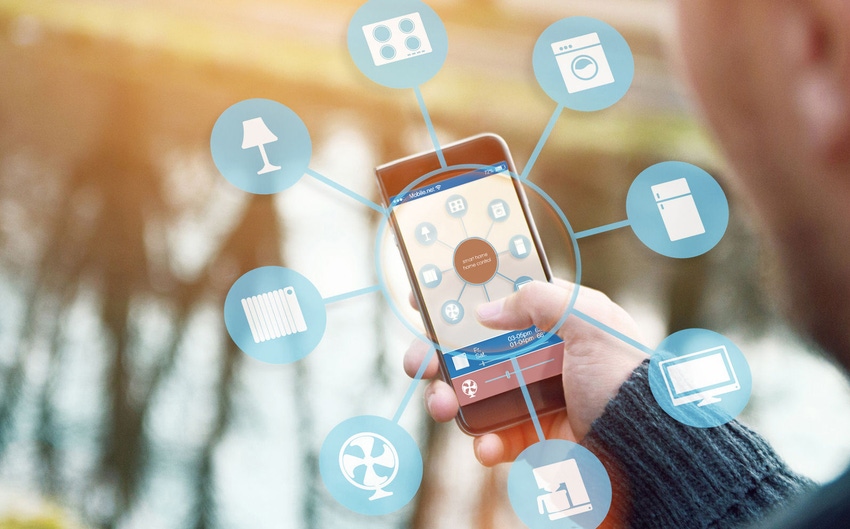This is a battleground beginning to really heat up as vendors seek alternatives to the humble but reliable switch or smartphone controlled systems currently on offer.
April 27, 2016

Telecoms.com periodically invites expert third parties to share their views on the industry’s most pressing issues. In this piece Adam Simon, Retail MD at channel data analytics firm CONTEXT, looks at emerging trends in the smart home market.
Most would agree that MWC 2016 was dominated by virtual reality. However, beyond all the headset launches and public demos, there were other key tech developments – most notably in the smart home, which played a much bigger role than at any previous shows.
This is understandable as consumer interest in the smart home is beginning to gain momentum. Our recent survey shows that Europeans are largely positive about the smart home, with 57 percent open to learning more about the concept. Furthermore, 43 percent expect to be living in a smart home within three to five years.
MWC saw the announcement of a variety of connected domestic devices – ranging from Oral-B’s Genius toothbrush to LG’s Star Wars-esque Rolling Bot. However, the more interesting developments at the show were less to do with consumer products and more about how the connected home is controlled.
This is a battleground beginning to really heat up as vendors seek alternatives to the humble but reliable switch or smartphone controlled systems currently on offer. They all seem to have concluded that this experience relegates your mobile to nothing more than a glorified remote, with no one wanting to find an app on their phone just to control their lights.
As the number of IoT enabled devices in our homes increases, consumers will want an effective and uniform platform through which to control everything. And, there are currently three main avenues being explored to create a better way of managing the smart home:
Voice control
Speaking to inanimate objects might seem like an odd concept now, but in a few years the entire smart home could be running on voice biometrics. Online retail giant Amazon has put a lot of effort into its Amazon Echo offering: a speaker that you can ask about to play music, give you a morning traffic update, or even tell you the latest football score.
Other smart products, such as Samsung Smart TVs now have voice recognition built in too. Yes, you can ask it to change channel and turn the volume up and down without touching the remote control, but it also builds a personal profile of you and every member of your family. It will learn what programmes you watch regularly so as soon as you ask it to ‘play the latest England game’, it knows you mean you want to see the latest goal from Daniel Sturridge, not the cricket or rugby.
Actions and gestures
If the thought of having to ask your coffee machine to start brewing in the morning is too much to face, why not set it off with a simple smile? Intel’s RealSense 3D camera recognises hand and head movements, and even facial expressions. It’s currently targeted at video gamers who can control the on-screen action with their hand rather than the control pad. But it’s soon expected to become more common in our everyday lives with thermostats, TVs, or laptops that you control with a swipe of the hand, a nod of the head, or even a wink or smile.
Mind control
It sounds like science-fiction but your thoughts alone could control your future smart home. The connected home will be full of devices able to monitor particular signals in your brain and see what you want to do before you’ve even had the chance to act upon it yourself. Incredibly, it’s already being developed. In a study by Eda Akman Aydin’s at Gaza University, all participants were able to control a phone, light, TV and heater all via signals from their brain activity. The technology might be slow to respond at the moment, but it’s a promising start.
Above all, what these three interfaces offer consumers is ease of use. Indeed, Apple co-founder Steve Wozniak thinks the Amazon Echo will be the next big platform, because it offers “luxury and freedom.” Retailers know that convenience wins over consumers and with some of the technology industry’s biggest players already investing heavily in smart home control devices, the question isn’t if the smartphone will be replaced in the smart home, but when.
 Adam is Global Managing Director, Retail Business Development, at analyst firm CONTEXT. He leads the company’s efforts to offer unrivalled research in to the IT channel and ICT retailer landscape across Europe.
Adam is Global Managing Director, Retail Business Development, at analyst firm CONTEXT. He leads the company’s efforts to offer unrivalled research in to the IT channel and ICT retailer landscape across Europe.
Read more about:
DiscussionAbout the Author(s)
You May Also Like








.png?width=300&auto=webp&quality=80&disable=upscale)


_1.jpg?width=300&auto=webp&quality=80&disable=upscale)


.png?width=800&auto=webp&quality=80&disable=upscale)